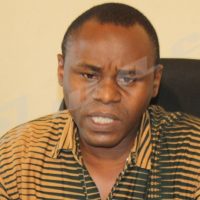Since 2014, public national debt is increasing. Today it exceeds BIF 1.200 billions. Parcem, a local NGO aiming at changing people’s mentality is worried about the way the debt is increasing.
“The accumulation of this national debt currently represents more than BIF 1.200 billions” said Faustin Ndikumana, Executive Secretary of Parcem on Thursday 8 June.
He says this debt represents twice the total revenue that Burundi Revenue Authority receives annually. He also says it increases every time a public deficit is financed by borrowing.
The debt is, according to him, divided between the advances of the central bank, (BIF 700 Billions) the debts to the commercial banks and the remainder concerns the private sector’s arrears on the treasury and obligation bonds. “The government is indebted for consumption and not for investing.” He says the accumulation of the debt is due to the delay of the payment by the private sector and the rescheduling of central bank advances. These ones are forbidden by the financial law and microeconomic convergence criteria of the East-African Community.
>> Domestic public debt (2012-2016)
Source : Bank of the Republic of Burundi
Public enterprises are not spared
M. Ndikumana accuses the central bank to manipulate the money supply while the real economy is not increasing. “This causes direct repercussions on the progressive depreciation of the national currency which will be observed through the increase in price in general”.
This activist of the civil society also mentions the effect of having the private sector dispossessed:” the central bank tends to finance the government instead of the private sector.” He says the arrears of the government towards the private sector hampers its operation.” It then becomes difficult for it to pay the delay interest.” The repeated requests of liquidity by the government drain the liquidity of public enterprises. This draining of liquidity limits public enterprise investments. He says if the debt continues to increase at the same speed, Burundi will risk having excessive debt.
He deplores, however, the absence of strategies to clear the debt. He recommends the government to adopt again a budgetary orthodoxy, that is a careful and sound management of the budget and provide an annual budgetary line intended to reimburse the debt.
We contacted Musharitse Désiré, spokesman for the Ministry of Finance but he said he should not react to any declaration made by Parcem and Olucome.


















 IWACU Open Data
IWACU Open Data

